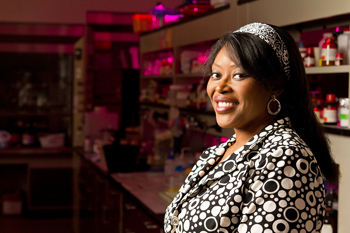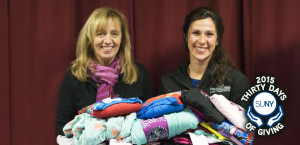
CSI work is coming to Albany. To be clear, I’m not planning a crime. And no, I don’t mean that CBS is setting another spin-off in New York’s capital city (Although, if they did, I’ve no doubt students from UAlbany’s theater department would be involved). But it’s neither of those. As you’re probably not surprised to hear, the University at Albany is involved in CSI research. In fact, Associate Professor Rabi Musah, a chemist at UAlbany, was just awarded a three-year, $688,158 grant to provide better tools for crime scene investigators when examining unknown plant materials found on a site.

This grant is a part of a new project at UAlbany which is focused on improving data collection at crime scenes and cutting down the time needed to examine and confirm abused plant residue. In particular, they hope to cut down on the time it takes to analyze substances like marijuana and other plants which are abused for their psychoactive properties and often found at crime scenes. This is no easy task as there are a number of plants which can be processed, repackaged, and sold as part of the multi-billion-dollar illegal drug market in the United States.
Musah told the communications team at Albany, “The goal of our project is to build a comprehensive database of abused plants that forensic scientists can use to more quickly process unknown plant materials at a crime scene, as well as provide a statistical analysis of the certainty of the results.”
And this goal is in good hands under the leadership of Professor Musah. Musah plans to partner with crime labs in New York and provide learning opportunities for students who want to become CSIs. And that’s not all. Musah serves as the director of UAlbany’s Center for Achievement, Retention and Student Success (CARSS), so she sees the added benefits of keeping young people interested in STEM fields. And what’s more interesting than solving crimes? Even I used to watch Bones as a little girl and dream of becoming a forensic anthropologist. The ability to see your work affect positive change in real time is something every student wants. And Musah knows that. “The research serves as a wonderful opportunity for project participants including women and other students historically underrepresented in STEM, to contribute directly to solving important current problems in science and technology,” she said.
Forensic technology is rapidly improving all across the world and now Rabi Musah and her team are a part of the progress.




I wish we had these kind of things when I attended SUNY. But this is going to be a great opportunity for our leaders of tomorrow. SUNY is always one step ahead of other colleges in the area. Great job administration and good luck Musah.